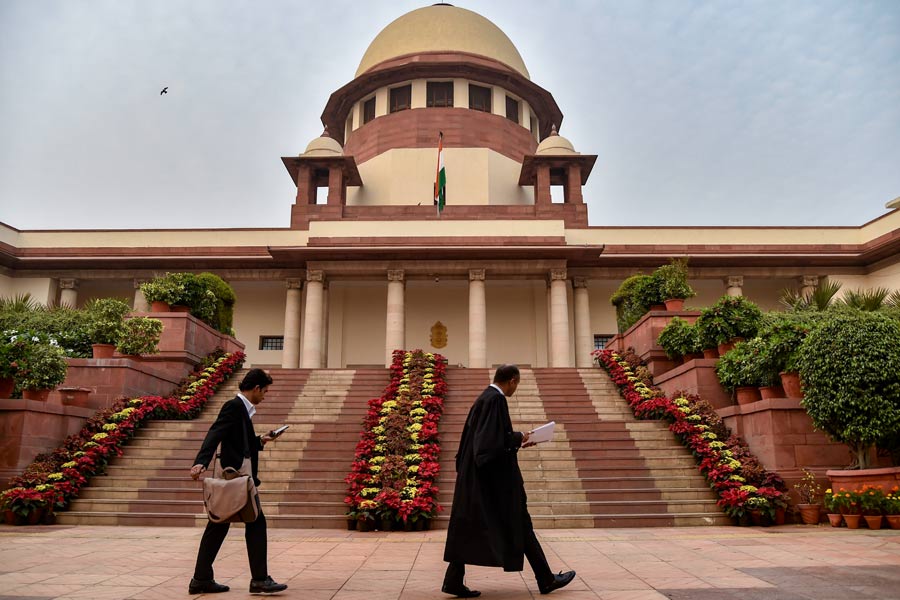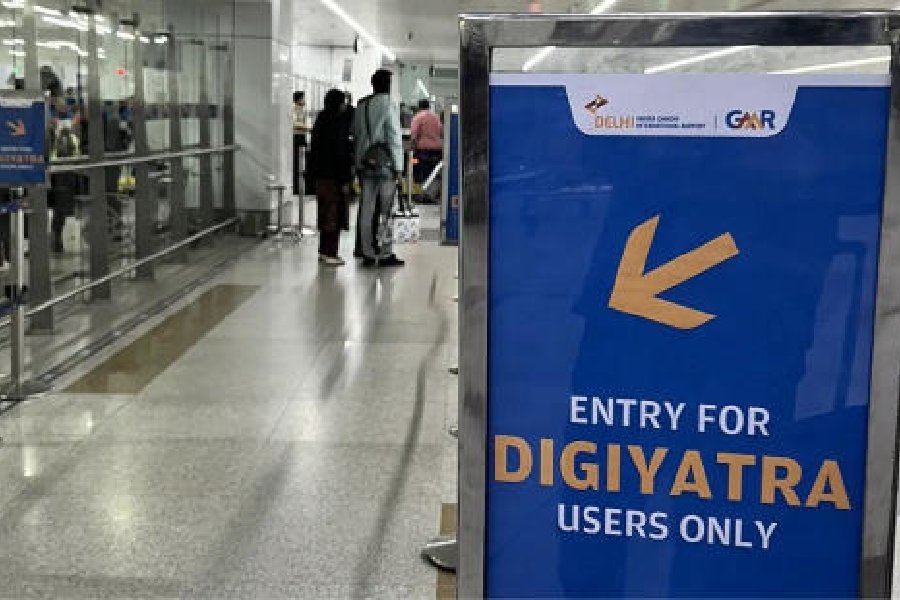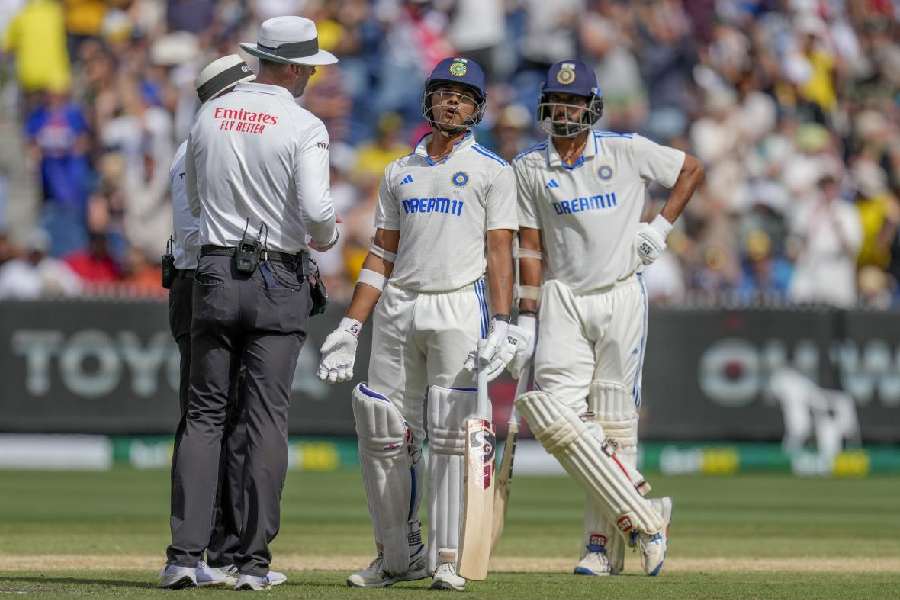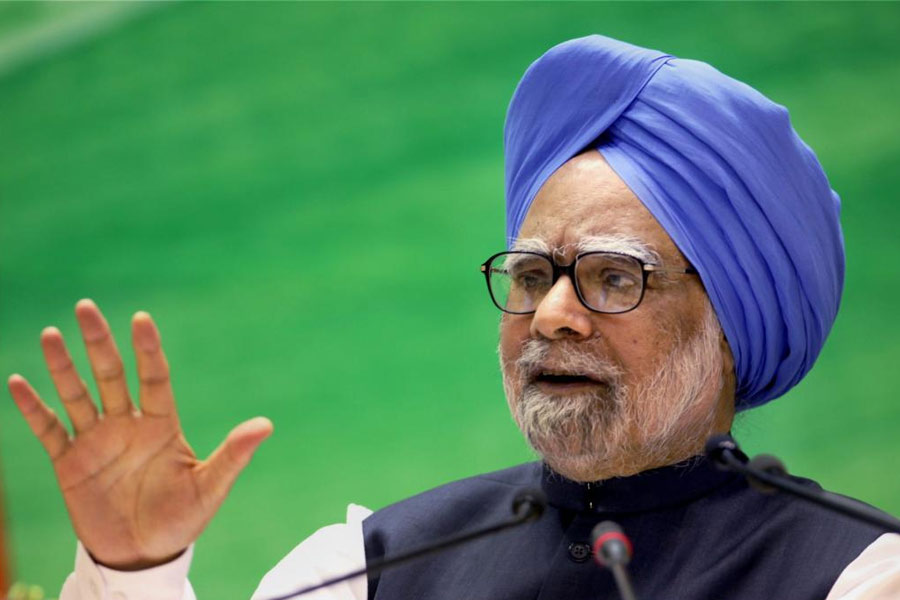The Supreme Court has ordered appointment of a 100 per cent visually impaired candidate, who cleared the Civil Services Examination (CSE) in 2009, within three months while slamming the Centre for failing to implement provisions of the Persons with Disabilities Act and fill backlog vacancies.
A bench of Justices Abhay S Oka and Pankaj Mithal said there is a "gross default" on the part of the Union of India in promptly implementing the provisions of the PWD Act, 1995.
"Unfortunately, in this case, at all stages, the appellant has taken a stand which defeats the very object of enacting laws for the benefit of persons with disability. If the appellant had implemented the Persons With Disabilities (Equal Opportunities, Protection of Rights and Full Participation) Act, 1995, in its true letter and spirit, respondent no.1 (visually impaired candidate) would not have been forced to run from pillar to post to get justice," the bench said.
In this case, Pankaj Kumar Srivastava, who is 100 per cent visually impaired, appeared in the Civil Services Examination, 2008 and gave four preferences for services in the following order -- Indian Administrative Services (IAS), Indian Revenue Services-Income Tax (IRS (IT)), Indian Railway Personnel Service (IRPS) and Indian Revenue Service (Customs and Excise) (IRS (C&E)).
After having taken the written test and interview, Srivastava was denied an appointment. He then moved the Central Administrative Tribunal which in 2010 directed the Union Public Service Commission and the Department of Personnel and Training to calculate the backlog vacancies following the mandate of the PWD Act, 1995 within six months.
CAT also directed the Union of India to inform Srivastava if service could be allocated to him.
Pursuant to the said order, on September 9, 2011, the UPSC informed him that his name did not figure in the merit list of CSE-2008 within the number of available vacancies for the PH-2 (Visually Impaired-VI) category.
Subsequently, Srivastava filed another application before the CAT which directed the UPSC to accomodate candidates selected on their own merit in the unreserved/general category in accordance with the Office Memorandum dated December 29, 2005.
A direction was issued that the candidates belonging to category VI must be selected against the reserved category and be given an appointment but the UPSC informed him in 2012 that he was not qualified for appointment in the PH-2 (VI) quota.
The Union of India, challenged the CAT judgment in the Delhi High Court which dismissed the appeal. The Centre then moved the top court.
The top court directed that cases of respondent no.1 (Srivastava) and 10 other candidates belonging to category VI, who were above him in the merit list of CSE-2008, shall be considered for appointment against the backlog vacancies of PWD candidates either in IRS (IT) or in other service/branch.
"Necessary action of giving appointments shall be taken within a period of three months from today. The appointments will be made prospectively. The appointees will not be entitled to the arrears of salary and the benefit of seniority, etc.
"Only for the purposes of retirement benefits, their services shall be counted from the date on which the last candidate of the VI category in CSE-2008 was given an appointment," the bench said.
The apex court made it clear that these directions have been issued as a one-time measure in the exercise of the jurisdiction of this Court under Article 142 of the Constitution of India, and the same shall not be treated as a precedent.
Except for the headline, this story has not been edited by The Telegraph Online staff and has been published from a syndicated feed.











